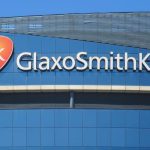Study Finds Many European Cancer Drugs Provided No Added Benefits

A recent study conducted by researchers at Utrecht University in the Netherlands has shed light on the approval of cancer drugs by the European Medicines Agency (EMA) between 1995 and 2020. According to their findings, a significant portion of these approved drugs lacked sufficient evidence of added benefit, posing concerns about the efficacy and cost-effectiveness of these treatments.
Lead researcher Francine Brinkhuis highlighted that approximately half of all new drug approvals featuring a new active substance are oncology drugs, underscoring the substantial focus on cancer treatments in pharmaceutical development. However, this concentration often results in numerous approvals for drugs targeting specific cancer types, with limited incremental innovations.
The study, published in the BMJ, analyzed 131 oncology drugs with 166 indications evaluated for added benefit over the relevant period. It revealed that health technology assessments (HTAs) indicated negative or non-quantifiable added benefits for two-fifths of these drugs.
Furthermore, the researchers examined the claim by the pharmaceutical industry that high drug prices are justified to offset research and development (R&D) costs. Contrary to this assertion, their analysis of publicly available revenue data compared to R&D costs showed that the median time to offset these costs was just three years. Drugs with higher added benefit ratings generally yielded greater revenues.
In response to the findings, the authors emphasized the increasing budgetary strain caused by the influx of innovative yet costly drugs into the market. They called for improved alignment between regulatory and reimbursement processes, especially for drugs approved through expedited pathways, to prioritize the development of the most effective treatments for patients with the greatest needs.
With global spending on oncology drugs projected to rise significantly, the study underscores the importance of ensuring alignment between incentives in the pharmaceutical market and patient interests. The researchers advocated for discussions among regulatory authorities, HTA bodies, and pharmaceutical companies to establish clear criteria for approving and reimbursing drugs based on preliminary evidence.
Looking ahead, new EU HTA regulations are set to incorporate processes for patient involvement, including joint clinical assessments for oncology drugs starting in 2025. These initiatives aim to better define and assess what matters most to patients while addressing potential conflicts of interest.
The study’s findings prompt a critical examination of current drug approval and reimbursement policies, urging stakeholders to prioritize patient outcomes and cost-effectiveness in decision-making processes.





